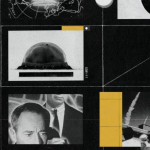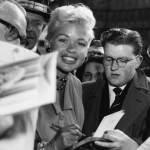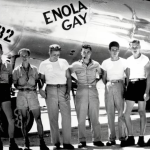Is this going to be the summertime hit?
Alex Warren’s “Ordinary,” a somber ballad with all the warmth of a fur coat, has been the most popular song in the nation for the past seven weeks. The song of the summer should ideally be upbeat so you can bob a flamingo floatie to the beat. Instead, “Ordinary” is designed for forgetting, stomping, and moping.
Other than that, the Billboard Hot 100’s top reaches have been largely stale and erratic, with songs from last summer’s hit list (like Teddy Swims’ “Lose Control”), replacement-level attempts by streaming giants Drake and Morgan Wallen, and references to the Netflix animated series KPop Demon Hunters. Then, just last week, Justin Bieber’s “Daisies,” the improbable symbol of our evidently brittle national mood, came out at No. 2 with a welcome dash of warmth and novelty.
Maybe you don’t want to listen to the latest music from a once-enthusiastic child star who has recently gained notoriety for his bizarre interactions with photographers. However, earlier this month, the 31-year-old Bieber unexpectedly dropped a brand-new album called Swag, which garnered media attention due to its high quality. Good for a contemporary pop release, but not “good for Bieber.” By meeting listeners where they so obviously seem to be—less in need of a party-fueling energy drink than a calming slather of aloe—Swag filled a gap in the summer listening landscape.
The album is Bieber’s first since he split from manager Scooter Braun, the titan of the record industry who recently appeared to have a disastrous collapse in the celebrity class’s support. The song indulges the singer’s well-known fascination with hip-hop and R&B, departing from the pert poppiness of Bieber’s previous work. The album’s music is far more subdued than the awkward statement made by comedian Druski to Bieber during one of the interludes: “Your soul is Black.” Bieber doesn’t actually rap. Instead, he does what great R&B singers and rappers frequently do: he finds a pocket within a beat and then lets emotions be his guide. He does this by using his creamy-soft, ever-yearning voice.
It sounds like it’s wrapped in gauze, which is what makes the album so intriguing. Instead of being glossy and laminated like one might anticipate from Bieber, the production is aqueous and rippling. The independent producer-artists Dijon, who worked with Swag on some of the album’s tracks, and Mk.gee, who produced “Daisies,” have a big influence on Swag. They became well-known by combining pop and rock signifiers from the past into a soothing yet intricate symphony. Similar to a minor retrieved memory, Swag’s songs captivate the listener with a sense of subtle intrigue.
The strategy is best illustrated by the immediate hit “Daisies.” Though every element seems muffled, as if coming from an iPhone buried in a couch, its twanging guitars and pounding drums scan as countrified classic rock. The verses gradually increase in vigor and intensity before fading away in a soft puff of emotion. Bieber sings in a lullaby whisper about wanting his girl and being there for her through good times and bad. One refrain is, “Hold on, hold on,” which expresses a desire for security and stability rather than fervor and heat.
However, “All I Can Take,” Swag’s opening single, is my own choice for song of the summer. With keyboard tones that were last popular when Steve Winwood and Boyz II Men were providing the music for school dances, it opens in a tenor of pure cheese. The scene is set for a parade of Biebers with a variety of sounds as a softly pumping beat takes center stage. In one instant, he is a panting impersonator of Michael Jackson. In another, he is a hyperpop sprite that has been electronically distorted. The song is calm, lovely, and incredibly depressing, but it also jiggles with details that imply there’s more to the tale than first meets the eye. “It’s all I can take in this moment,” Bieber sings, implying a burnout whose cause the listener is left to speculate. The lyrics weave together sex talk with hints of stresses that need to be escaped.
Both musically and emotionally, Swag’s style—downtempo yet busy, melancholic yet awake—is popular. Despite the abundance of lively pop albums this year from artists like Lady Gaga and Kesha, the music that has remained popular has a subdued, mellow vibe. “What I Want,” a collaboration with whisper-singing diva Tate McRae, is Wallen’s biggest song right now. It builds suspense for a full minute before any percussion enters. The neo-soul arrangement of one up-and-coming hit, “Love Me Not” by Ravyn Lenae, is enough to keep the ear busy without requiring active attention.
The popularity of this type of music is most likely due to a somber technological factor: Background fare is more rewarded by streaming than startling dynamism. However, downtempo appears to be popular even when I look at my own recent playlists. “Headphones On,” a laid-back song with jazz keyboards and tolling bells, is the best song by Addison Rae, the TikTok sensation who became a pop genius. The album Choke Enough by Oklou, a French singer whose electronic pop is so skeletal and frail-looking that you worry you’re despoiling the songs just by listening to them, is one that I keep coming back to. Other recent highlights include the wintry-sounding standout from Lorde’s Virgin, “Shapeshifter,” the mumbled and dreamy indie rock of Alex G’s Headlights, and the melancholy easy listening of Haim’s I quit.
Psychoanalyzing this season’s musical offerings and coming to the conclusion that the culture is experiencing malaise, or at the very least a hangover, is difficult to avoid. After all, we had “Brat summer,” which was named after the hedonistic Charli XCX album, only a year ago. That summer’s hits were unstoppable: Shaboozey’s thumping “A Bar Song (Tipsy),” Kendrick Lamar’s taunting “Not Like Us,” and Sabrina Carpenter’s sardonic “Espresso.” However, Charli XCX’s most popular song this year is “Party 4 U,” a 2020 pandemic-doldrums ballad that recently went viral due to a TikTok trend where users shared emo stories about their lives. The hazy sensation of trying to have fun but being drawn into melancholy is captured in the song.
Many Americans can undoubtedly identify with that sentiment. Every era has its own reasons to be concerned about the state of the world, but recent headline-news stories about wars, deportations, and layoffs are drastically altering lives on a large scale. Great pop always manages to make small, private feelings reverberate with larger, collective ones, but Swag isn’t about any of that.
Bieber’s well-known struggles with substance abuse, mental health issues, and physical illnesses have long served as a warning about life in the internet age. Swag confronted reporters on the street and posted irate, incomprehensible messages online in the months before his release. Commentators have started to inquire, “Is he okay?” Swag’s calming, ambiguous, slightly agitated tone is a kind of response. He’s doing as well as he can under the circumstances, just like a lot of us.













